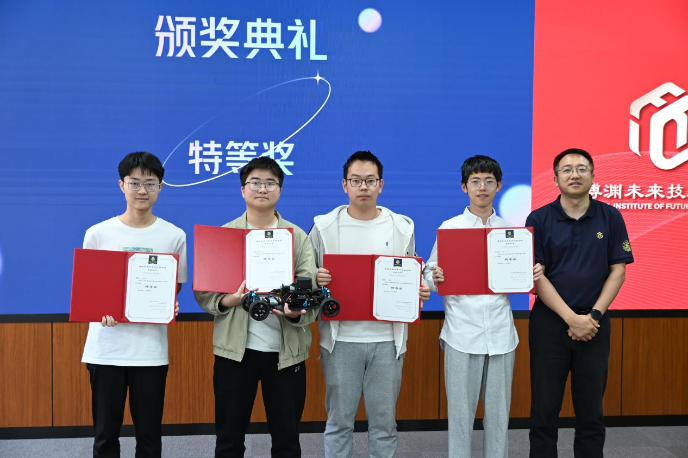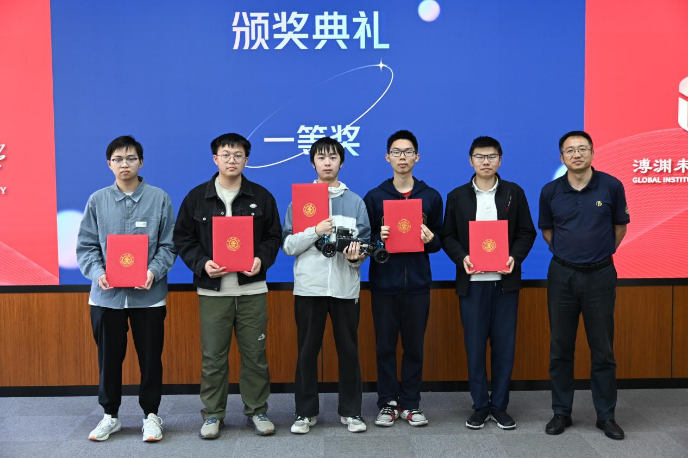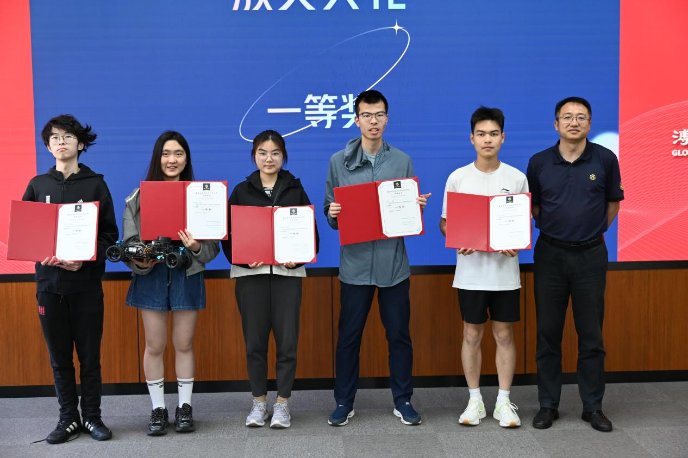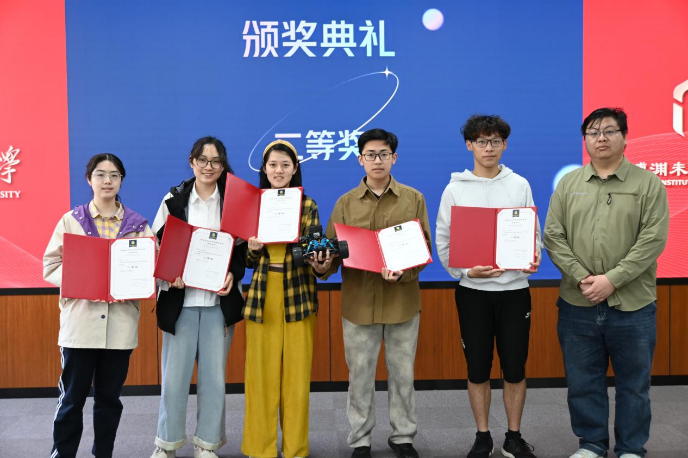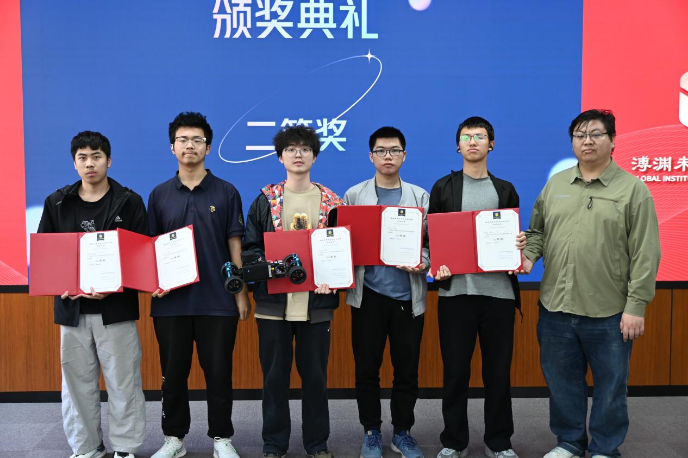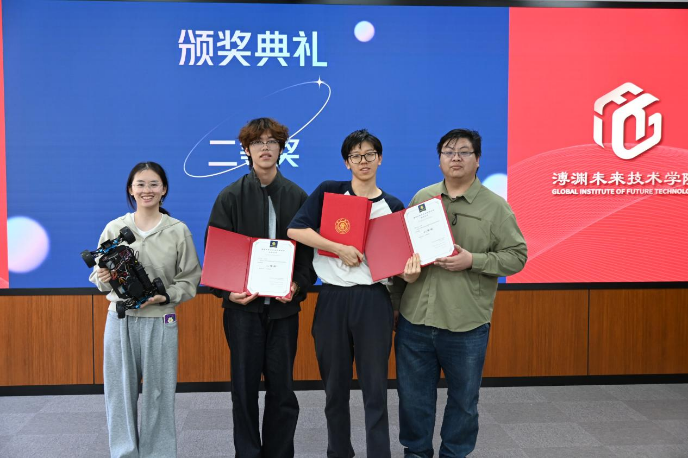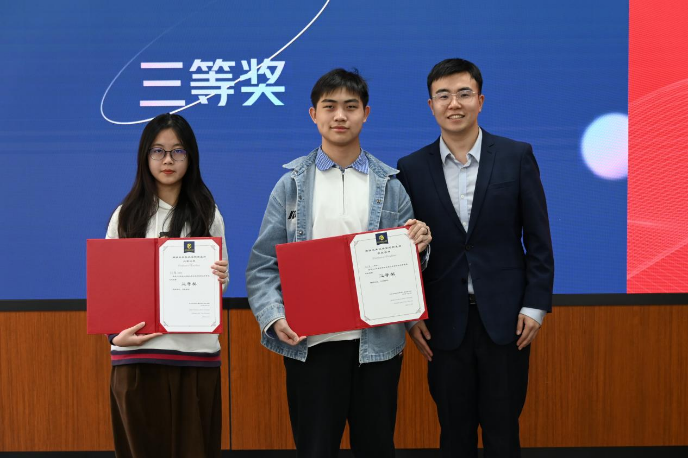Enlighten the Future and Witness Innovation!Global Institute of Future Technology Celebrates the Successful Completion of the 2nd Freshman Cup Intelligent Vehicle Challenge!
On the afternoon of April 26, 2025, the final round of the 2nd Freshman Cup Intelligent Vehicle Challenge of the Global Institute of Future Technology was successfully held in the Lecture Hall No. 200 of the college. With the theme “Enlighten Future and Witness Innovation”, the event was planned and executed by the Student Research and Innovation Association (hereinafter referred to as the Student Science Association) of the college, attracting 10 freshmen teams to participate and more than a hundred representatives of teachers and students to observe on the spot. Dean Ni Jun, Deputy Secretary of the Party Committee Han Haibo, student science and innovation instructor Xie Yujun, and Ideology and Politics teacher Feng Bohan attended the event. The event was hosted by Li Zhaoyi, the president of the Student Science Association.
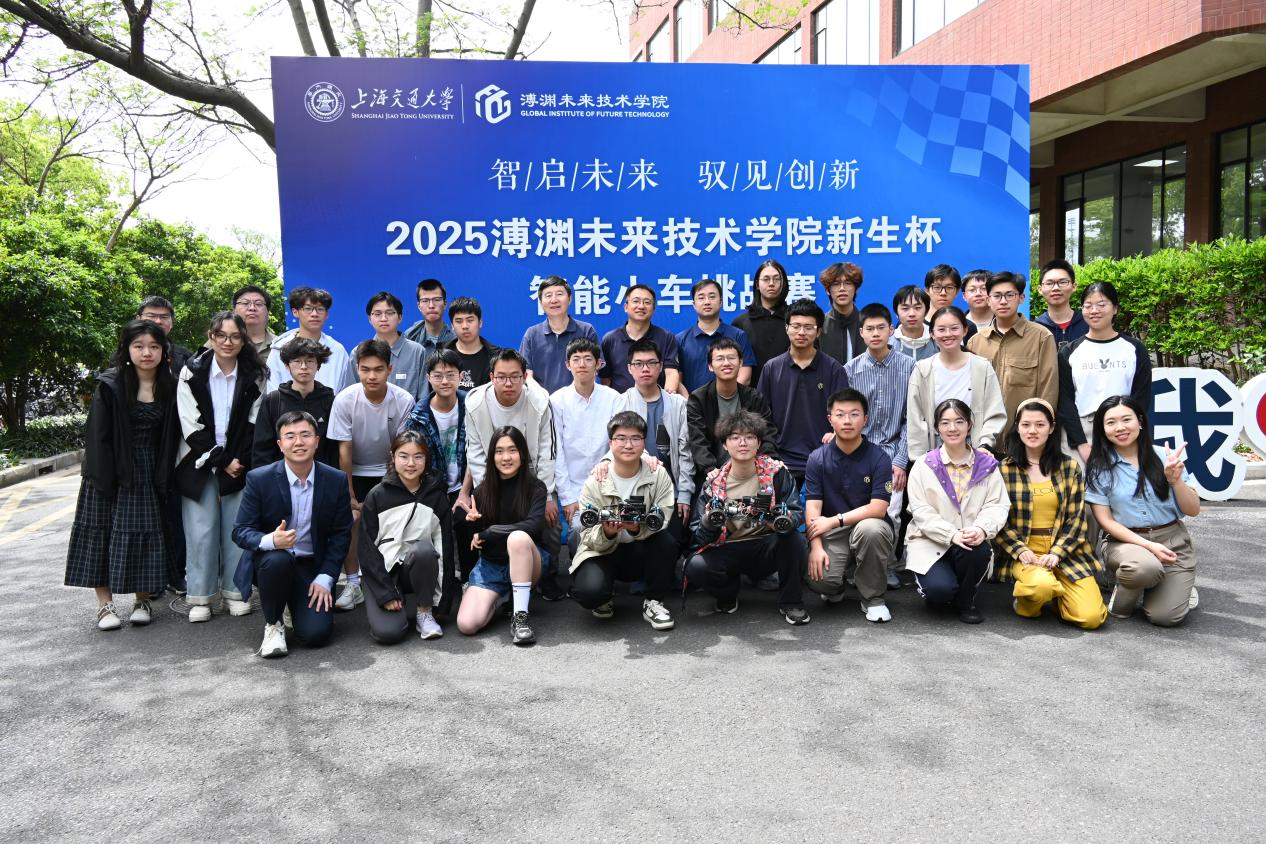
In the opening speech, Ni Jun pointed out that the intelligent vehicle competition is an important practice carrier of the college's engineering education system, which effectively enhances students' interdisciplinary integration ability and innovative thinking through the systematic cultivation mode of promoting learning by competition and promoting creation by competition. He emphasizes that this competition has achieved three major innovative breakthroughs based on what was inherited from the first experience. Firstly, educating students through practice. Benchmarking the standard of the National Intelligent Vehicle Competition for college students, the hardware defects challenge and innovative counting race links ware added to strengthen the students' ability to solve complex engineering problems. Secondly, passing the torch. By inviting past national competition winners to serve as technical advisors, we formed a closed training loop by passing on the skills. Thirdly, independent innovation. For the first time, the student science association independently completed the whole process of event organization, covering the design of the competition system, technical evaluation, and on-site adjudication, which fully demonstrated the excellent executive power of the student team.
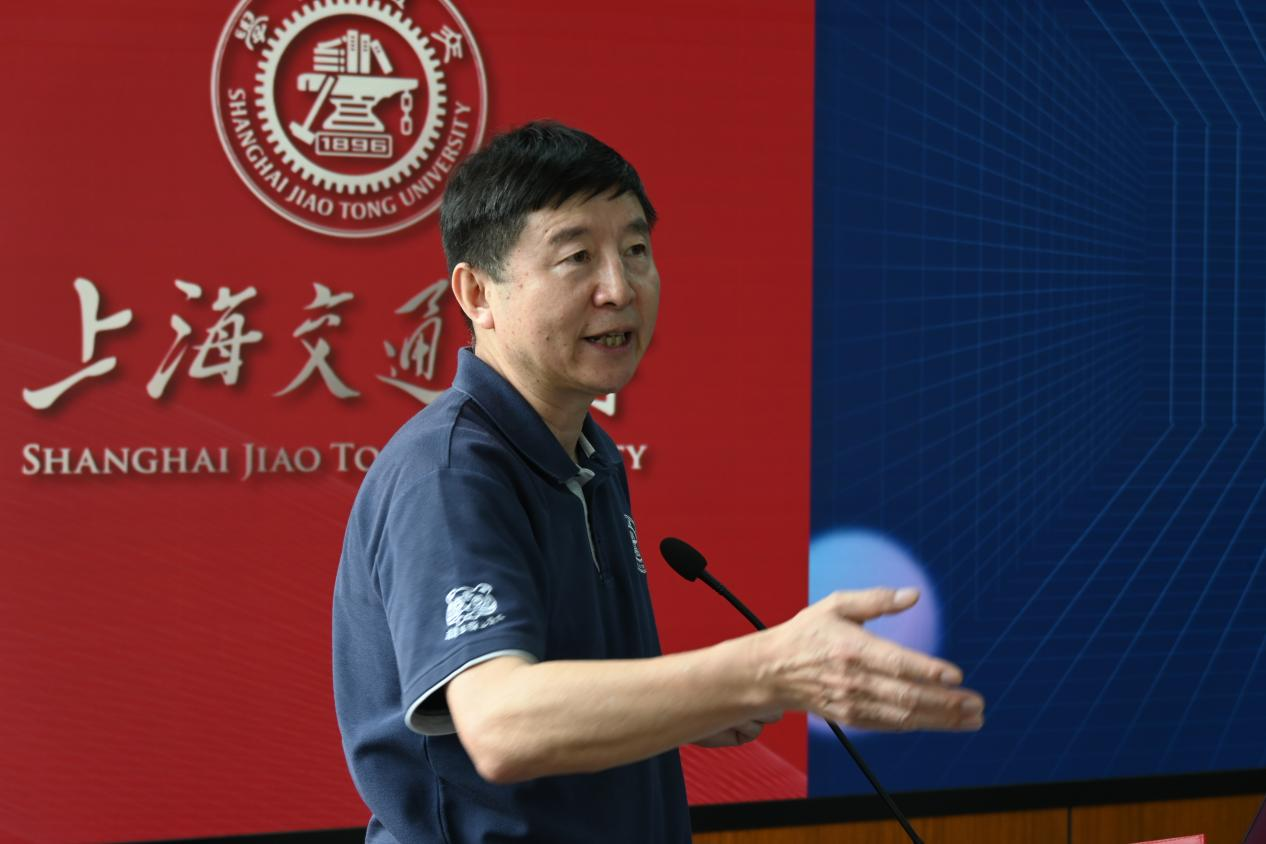
Li Zhaoyi made a comprehensive interpretation of the current race system. This year's competition innovatively adopts the parallel mechanism of time trial (speed competition) and course counting (stability test), ensuring fairness through the forward/reverse double-circuit system, with each team challenging twice in each of the two types of courses, and ultimately taking the average of the optimal results as the basis for evaluation. The tournament lasted 35 days and was divided into three stages: the warm-up match on March 22 to complete the system debugging, the preliminary match on April 12 to select elite teams through the 10 into 6 knockout rounds, and the final six winning teams to advance to the final on April 26.
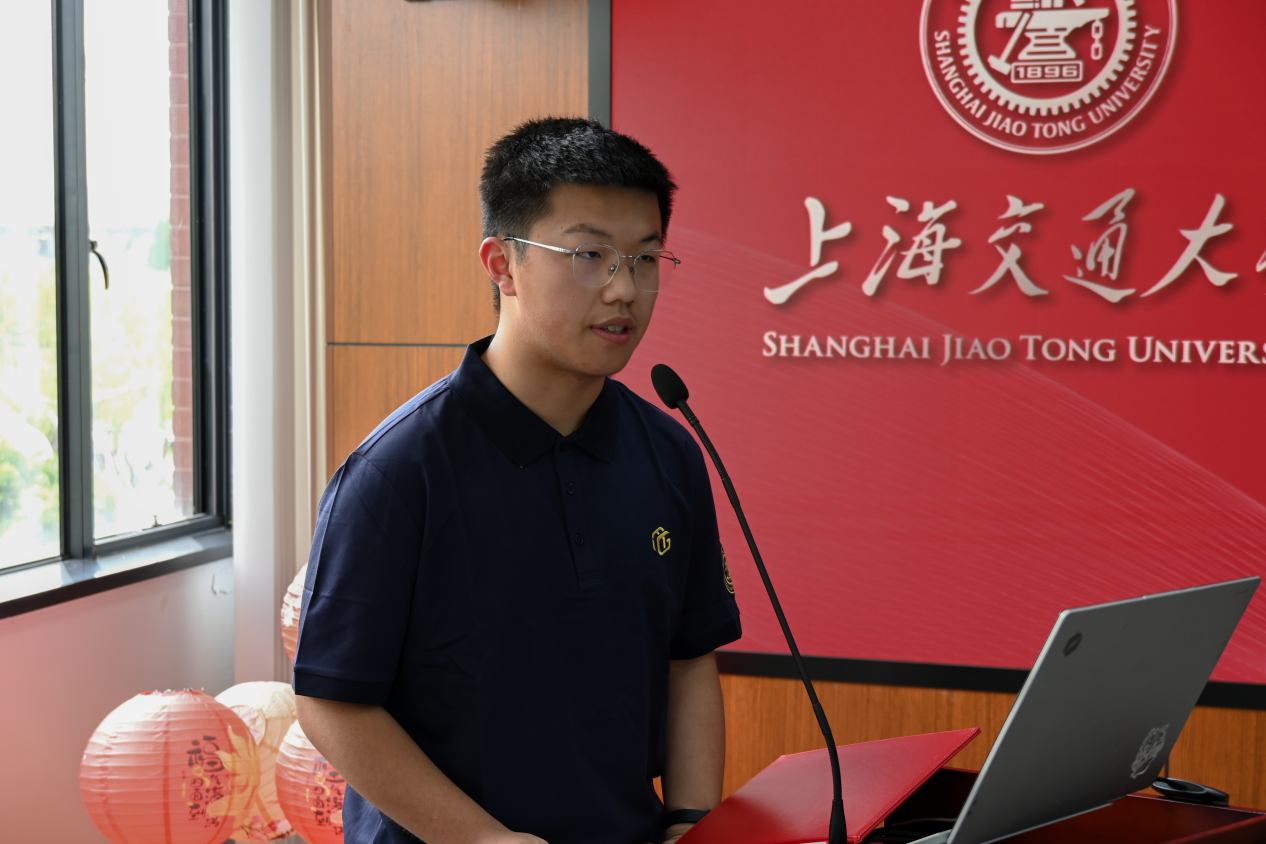 To ensure the fairness and impartiality of the game, the representative of the referee group, Xu Xi Jun, led all the referees to take a solemn oath to strictly enforce the tournament rules.
To ensure the fairness and impartiality of the game, the representative of the referee group, Xu Xi Jun, led all the referees to take a solemn oath to strictly enforce the tournament rules.
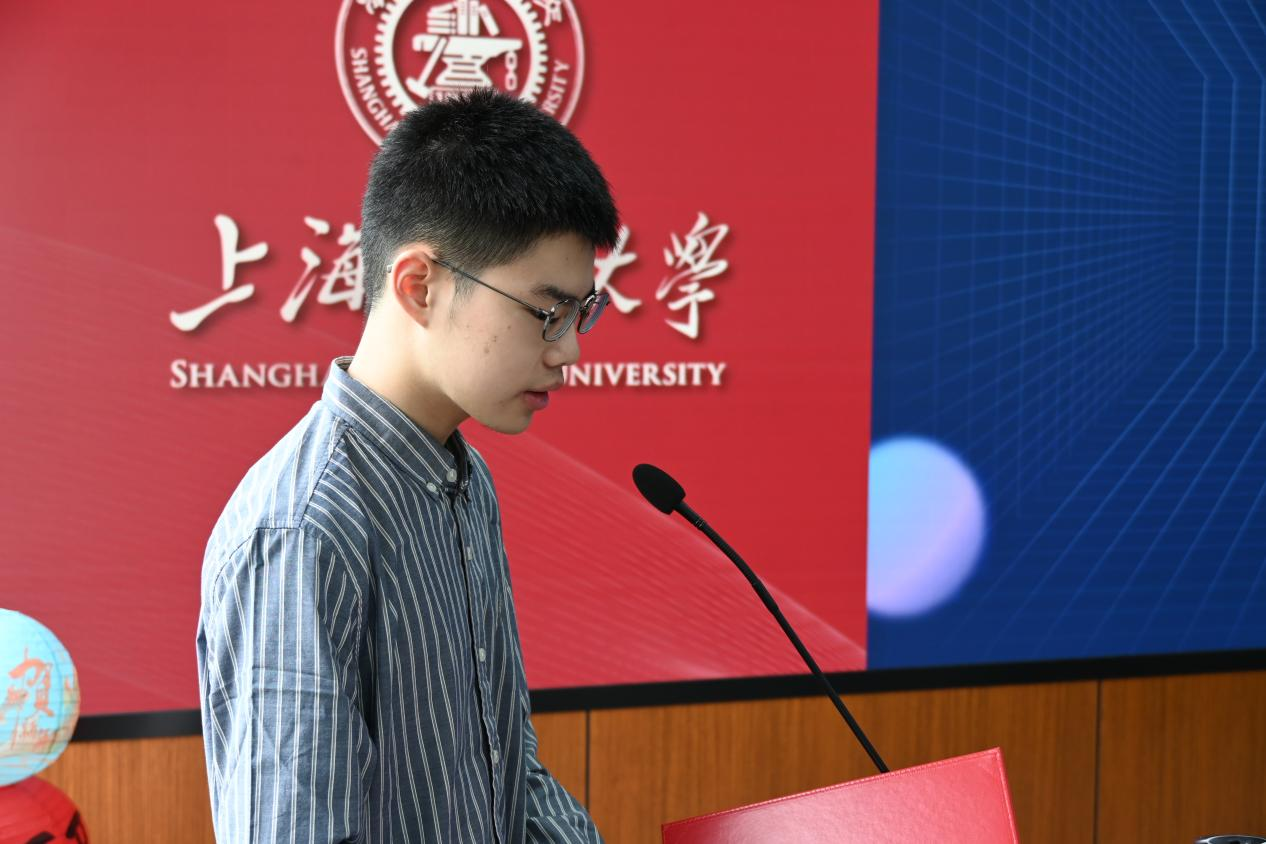
The atmosphere of the finals was intense, and the six advancing teams continued to deal with all kinds of unexpected technical problems in the competitive process. Candidates needed to diagnose and repair random hardware failures in real time, dynamically adjust the parameters of the control algorithm, and instantly optimize the driving path according to the changes in the track. After two hours of fierce competition, one grand prize, two first prizes, and three second prizes were finally awarded. Among them, the team composed of Zhao Shixian, Shen Tuo, Pan Junyi, and Luo Xu won the first prize with the total score for their stable performance in the time trial and the distance race.
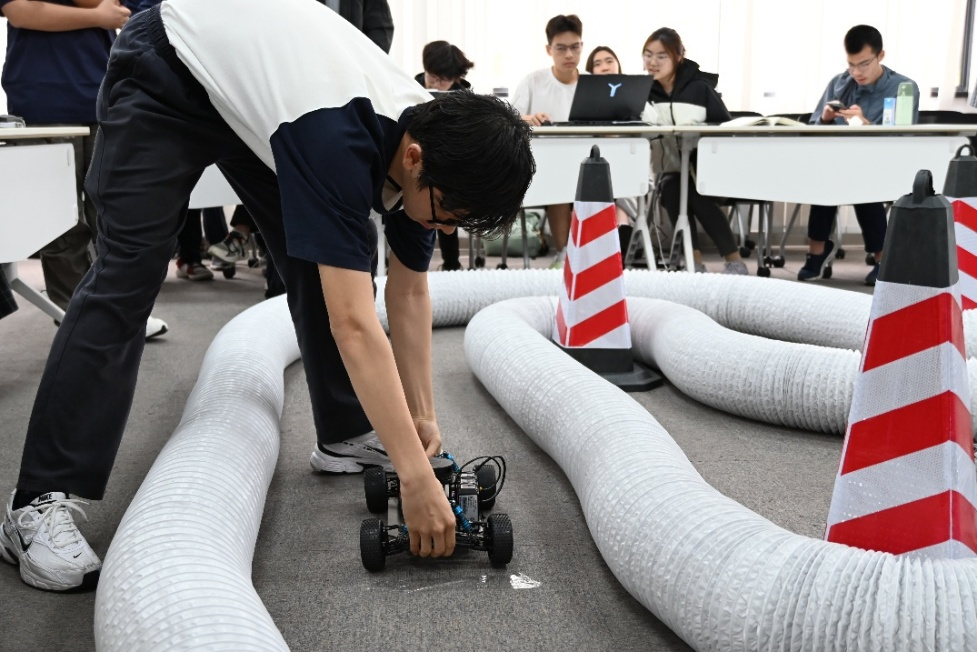
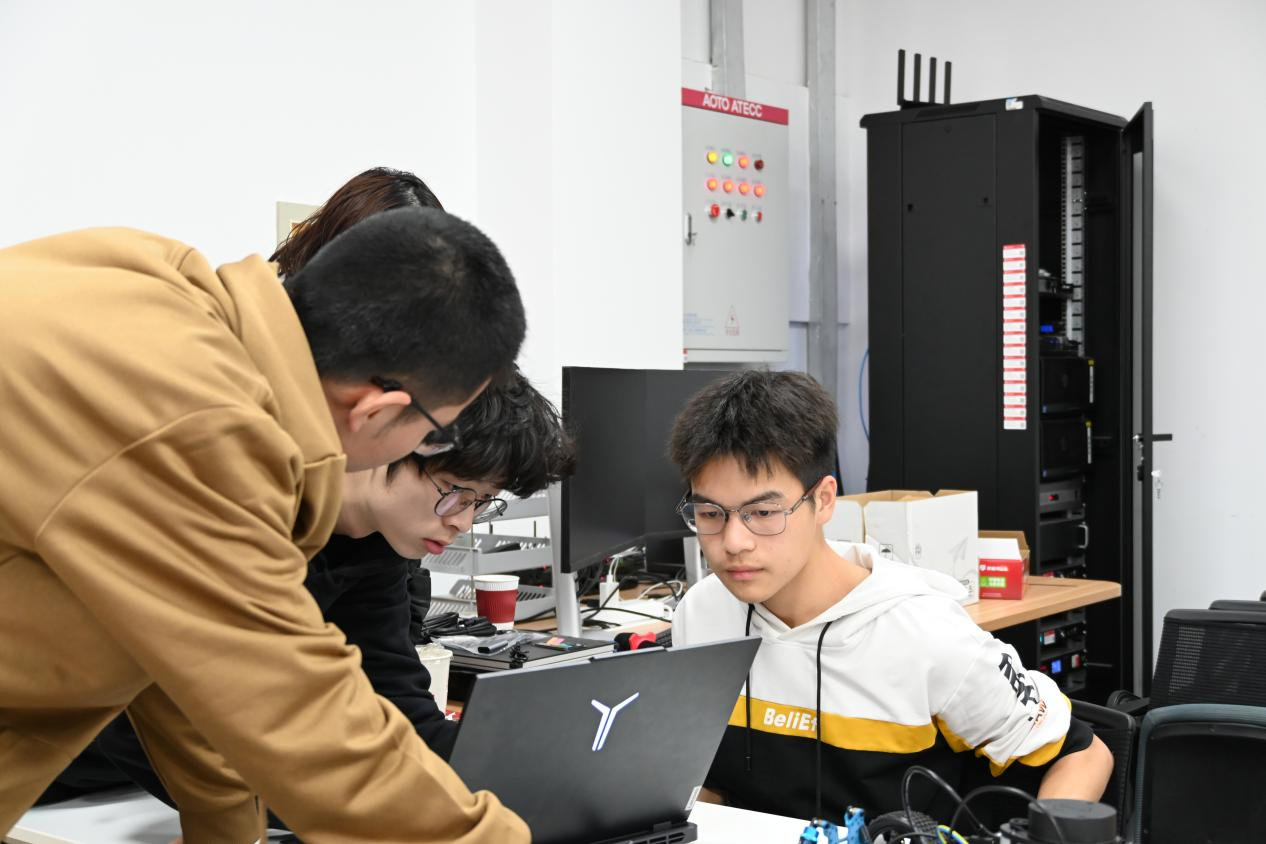
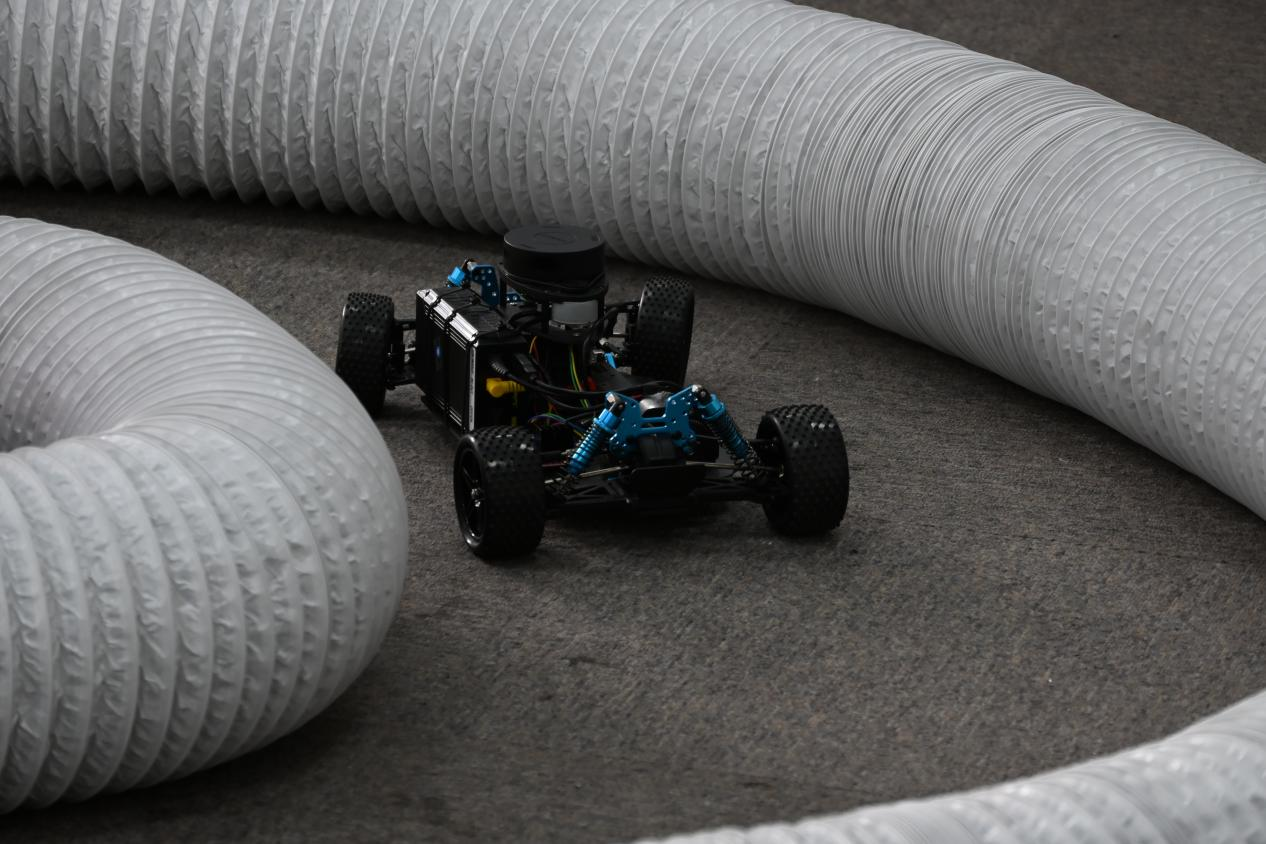
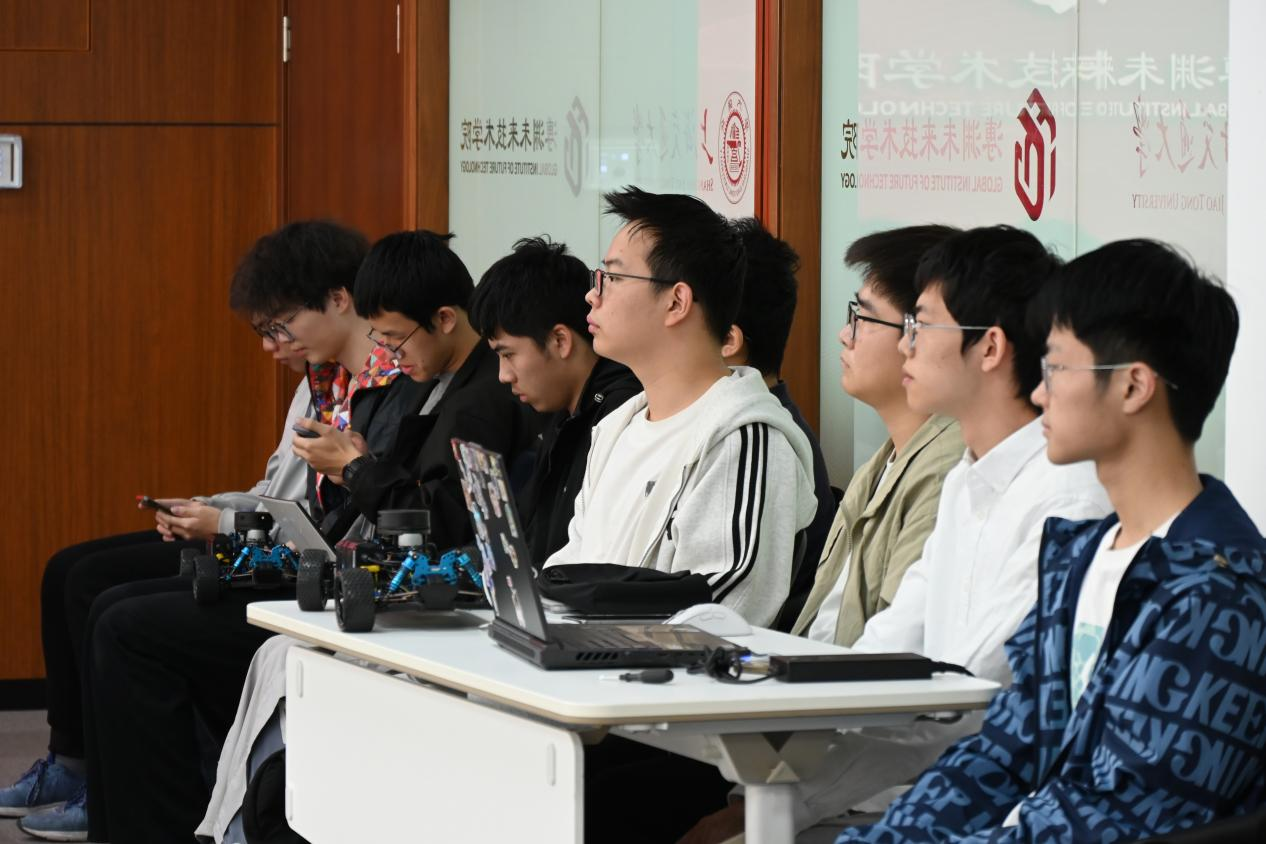
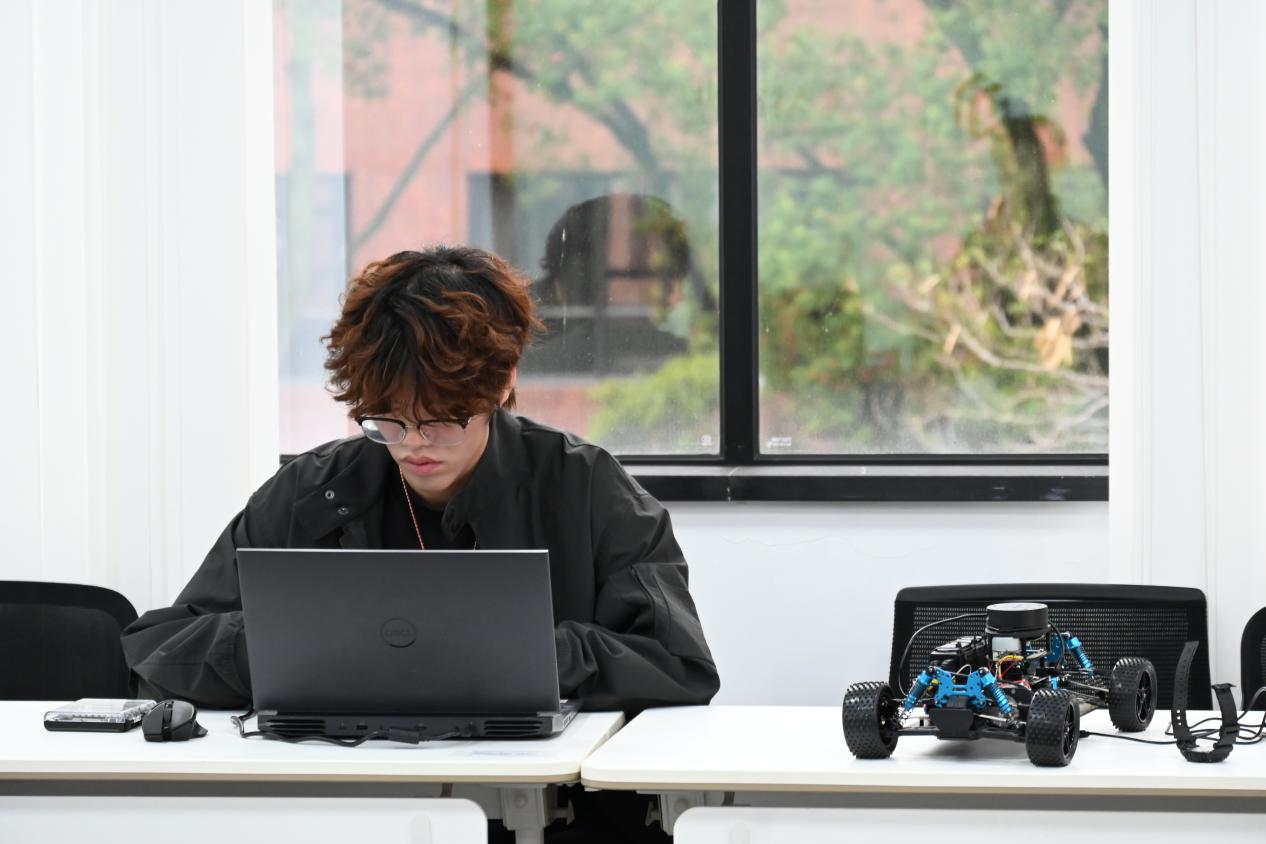
决赛现场 The scene of the finals
|
|
|
|
|
|
|
|
|
|
|
|
颁奖典礼 Prize giving ceremony
This year's Intelligent Vehicle Challenge fully demonstrates the schooling characteristics of promoting learning through competition and practical training. With the innovative mode of students' self-organized tournaments + professional competition, the tournament enables new students to systematically improve their engineering practice abilities in practical sessions such as hardware system debugging and control algorithm optimization. The college will continue to improve the theory-practice-innovation training system, promote the deep integration of students' professional knowledge and engineering ability by building a better practical teaching platform, and provide strong support for the cultivation of future scientific and technological leaders with innovative thinking and complex engineering problem-solving ability.




